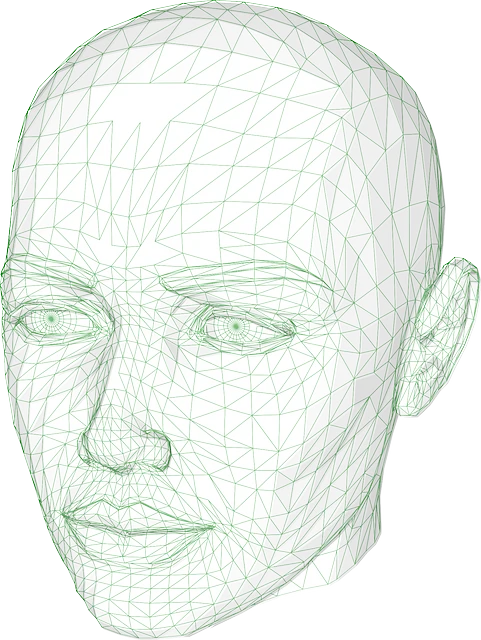Generalized anxiety disorder (GAD) is a chronic condition characterized by excessive and persistent worry that impacts daily functioning. Effective treatment for GAD often includes a mix of medications such as SSRIs, benzodiazepines, and antidepressants, coupled with cognitive-behavioral therapy (CBT). A growing interest in alternative treatments like the kratom and coffee pairing is based on its potential to enhance mood and energy levels by combining the alkaloids from kratom with caffeine from coffee. This combination can stimulate alertness and focus, but it's important to approach such remedies with caution due to possible interactions with other medications and varying individual responses. Beyond medication, lifestyle adjustments including regular physical activity, a balanced diet, adequate sleep, and stress management are integral to managing GAD, aiding in mood stability and symptom reduction. A personalized treatment plan, tailored by healthcare professionals specializing in anxiety disorders, is essential for safe and effective GAD management.
explore the complexities of generalized anxiety disorder (GAD) and its managing symptoms through various therapeutic avenues, with a particular focus on the role of kratom and coffee in GAD management. This article delves into understanding GAD, the intricate interplay between natural substances like kratom and coffee, and the array of professional treatment options available. From medications to therapy, and crucial lifestyle adjustments, readers will gain a comprehensive overview of how to navigate this condition effectively. Join us as we shed light on effective strategies for coping with GAD, emphasizing the potential benefits and considerations of kratom and coffee pairing in managing anxiety symptoms.
- Understanding Generalized Anxiety Disorder (GAD) and its Symptoms
- The Role of Kratom and Coffee in GAD Management: A Comprehensive Look at the Pairing
- Professional Treatment Options for GAD: Medications, Therapy, and Lifestyle Adjustments
Understanding Generalized Anxiety Disorder (GAD) and its Symptoms
Generalized Anxiety Disorder (GAD) is a common mental health condition characterized by persistent, excessive worry about various aspects of life, accompanied by physical symptoms that persist for at least six months. Individuals with GAD typically experience a heightened state of alertness and apprehension, often anticipating disaster and acting as if anxious events are imminent. Symptoms can include restlessness, fatigue, difficulty concentrating, irritability, muscle tension, and sleep disturbances. These symptoms can significantly impair an individual’s ability to function effectively in day-to-day activities.
Understanding the neurological mechanisms behind GAD is an ongoing area of research, with scientists exploring various treatments that aim to alleviate its debilitating effects. One emerging area of interest involves natural supplements and substances such as kratom, which is derived from the leaves of the Mitragyna speciosa tree. Kratom contains compounds that may influence brain receptors, potentially offering anxiolytic (anxiety-reducing) effects. When combined with coffee, another substance known for its stimulant properties, there appears to be a synergistic effect. This pairing is believed by some to enhance mood and energy levels while reducing anxiety symptoms. It’s important for individuals considering such a pairing to consult healthcare professionals to ensure safety and appropriateness of treatment. Additionally, professional guidance is crucial in determining the correct dosage and monitoring potential interactions with other medications an individual may be taking.
The Role of Kratom and Coffee in GAD Management: A Comprehensive Look at the Pairing
The intersection of traditional treatments and alternative remedies often presents intriguing possibilities for managing conditions like generalized anxiety disorder (GAD). Within this context, the pairing of kratom and coffee has garnered attention in GAD management due to their shared chemical constituents. Kratom, a plant from Southeast Asia, contains alkaloids such as mitragynine and 7-hydroxymitragynine, which are believed to modulate neurotransmitter levels like serotonin and dopamine, potentially offering anxiolytic effects. When combined with coffee, which also influences neurotransmitter pathways through caffeine and other bioactive compounds, individuals with GAD may experience a synergistic effect that alleviates anxiety symptoms. This kratom and coffee pairing is not without controversy, as the efficacy and safety of kratom are subjects of ongoing research and regulatory scrutiny. Nonetheless, anecdotal evidence and some scientific studies suggest that this combination may provide a degree of relief for those with GAD, warranting further investigation into its potential role in treatment regimens.
It is crucial to approach the kratom and coffee pairing with caution, as both substances can have potent effects and interactions with other medications. The use of these substances should be under the guidance of a healthcare professional, especially given their potential for addiction, side effects, and regulatory status in various jurisdictions. A comprehensive look at the pairing includes understanding the mechanism of action of each substance, the psychological impact on individuals with GAD, and the long-term implications of such an approach to self-medication. As the field evolves and more evidence becomes available, healthcare providers can better assess the viability and safety of incorporating kratom into the existing arsenal of treatments for managing anxiety, alongside traditional therapies and lifestyle modifications.
Professional Treatment Options for GAD: Medications, Therapy, and Lifestyle Adjustments
Generalized anxiety disorder (GAD) is a common and chronic condition characterized by excessive, ongoing worry that can interfere with daily living. Professional treatment for GAD encompasses a multifaceted approach that includes medications, therapy, and lifestyle adjustments. Medications such as selective serotonin reuptake inhibitors (SSRIs), benzodiazepines, and other antidepressants are often prescribed to manage the symptoms of anxiety. These can be particularly effective when combined with cognitive-behavioral therapy (CBT), which helps individuals modify their thought patterns and behaviors to reduce anxiety. Additionally, certain alternative treatments have gained attention for their potential benefits in managing GAD symptoms. Among these is a kratom and coffee pairing, which some individuals report can enhance mood and energy levels. Kratom, a mitragynoid alkaloid derived from the leaves of the tropical evergreen tree Mitragyna speciosa, is known for its stimulant and sedative properties at different dosages. When paired with coffee, which contains caffeine, an individual might experience heightened alertness and improved focus. However, it’s crucial to approach such alternative treatments with caution, as they can have significant interactions with other medications and may not be suitable for everyone. It’s also important to note that lifestyle adjustments, including regular exercise, a balanced diet, adequate sleep, and stress management techniques, play a pivotal role in the overall treatment plan for GAD. These adjustments can help stabilize mood, improve physical health, and reduce anxiety symptoms. Ultimately, a comprehensive approach tailored to the individual’s specific needs and circumstances is most effective in managing GAD. Consulting healthcare professionals experienced in treating anxiety disorders is essential to determine the best course of treatment.
In conclusion, generalized anxiety disorder (GAD) is a common yet complex mental health condition that can significantly impact one’s quality of life. A nuanced understanding of its symptoms and the intricacies of its management, including the interplay between lifestyle choices like Kratom and coffee pairing, is crucial for effective treatment. Professional interventions encompass a comprehensive approach, integrating pharmacological therapies, therapeutic techniques, and lifestyle modifications to address GAD holistically. By recognizing the multifaceted nature of GAD and employing a combination of treatments tailored to individual needs, individuals can navigate their path towards improved well-being and resilience against the challenges posed by this disorder.






